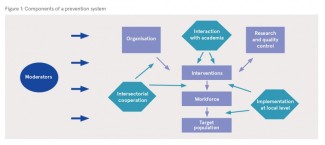National Training Program on Prevention in Schools: The Paraguayan Experience
EXECUTIVE SUMMARY
In 2024, a public call from the Ministry of Education and Science for the contracting of a higher education institution to design and implement a training programme in strategies for preventing psychoactive substance...



